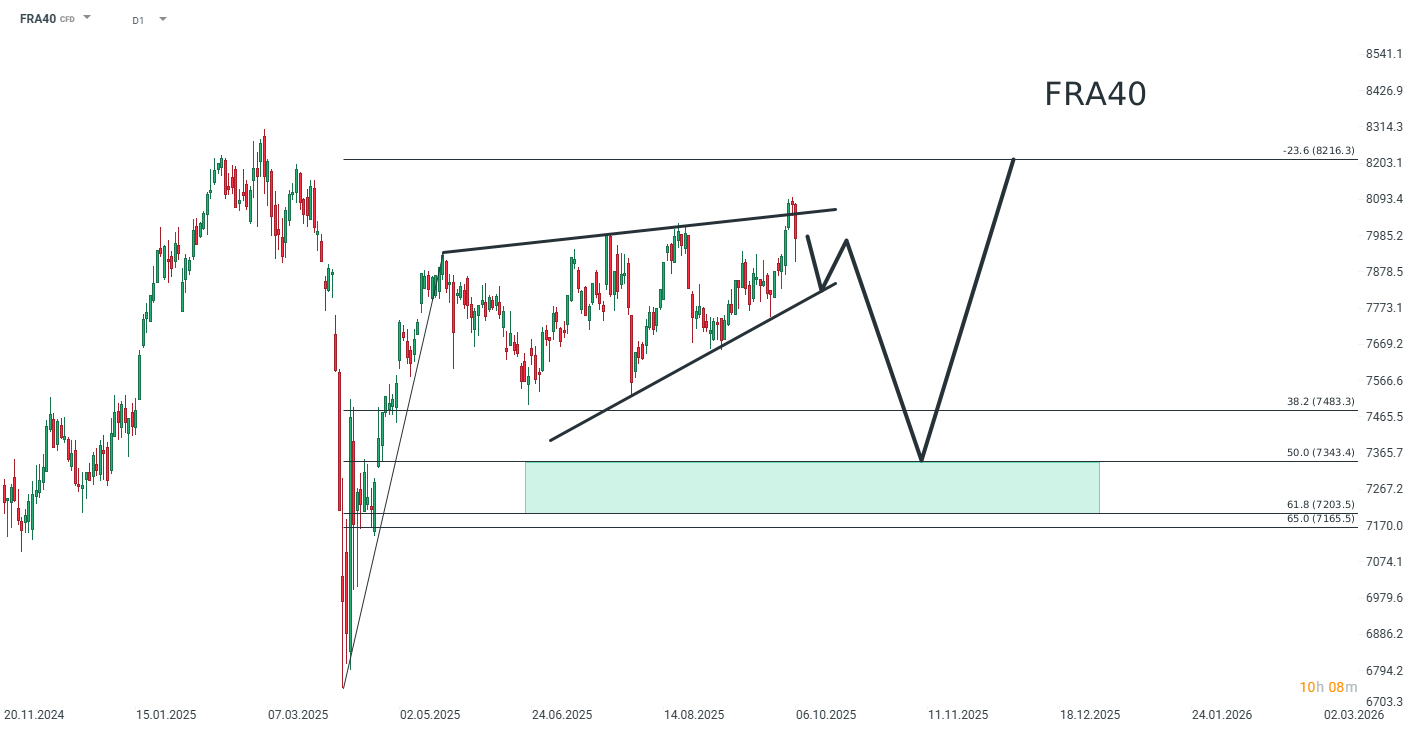-
The resignation of Prime Minister Sébastien Lecornu exposes deep political dysfunction and unprecedented instability in France.
-
France faces a systemic debt risk with €3,345 billion owed, rising interest rates, and a fragile market environment exacerbated by investor distrust.
-
The nation teeters between political paralysis and financial vulnerability, with the credibility of the state and confidence in democracy now at stake.
-
The resignation of Prime Minister Sébastien Lecornu exposes deep political dysfunction and unprecedented instability in France.
-
France faces a systemic debt risk with €3,345 billion owed, rising interest rates, and a fragile market environment exacerbated by investor distrust.
-
The nation teeters between political paralysis and financial vulnerability, with the credibility of the state and confidence in democracy now at stake.
The resignation of Sébastien Lecornu from his position as Prime Minister, accepted this morning by Emmanuel Macron, is not just a routine governmental episode. It signals a deep dysfunction in French political life, an executive branch that is faltering, and a collective confidence that is eroding. In just a few days, the newly appointed government has imploded under the weight of criticism and contradictions.
This sudden departure, at a moment when the country is seeking a clear budgetary and social direction, plunges France into a political instability unprecedented since the start of Emmanuel Macron’s second term. The president now faces a wall: urgently appoint a new Prime Minister, dissolve an already fragmented National Assembly, or assume — at least symbolically — responsibility for the current deadlock.
The consequences are immediate. Ministerial trips are canceled, decisions are suspended, and financial markets, uneasy, are already punishing the situation: the CAC 40 dropped nearly 2% this morning, with French banks on the front line. The executive appears paralyzed, while public opinion watches, weary, a political spectacle that has become almost routine in its permanent crisis.
Tensions on French debt: a systemic risk
France finds itself in a delicate position: high budget deficits, political instability, and growing investor distrust create a toxic cocktail. As of September 2025, public debt reached €3,345 billion, or 114% of GDP, the highest in the eurozone. Deficits remain concerning: 5.8% of GDP in 2024 and 5.4% projected for 2025.
Interest rates have been climbing since 2024: the 10-year government bond rate now stands at 3.60%, a critical barrier that must not be crossed for fear of an attack on French debt. The CAC 40 is also suffering from the tension, despite its internationally oriented components. The French 10-year yield surpasses those of Spain, Portugal, and even Greece; the 30-year yield reaches 4.45%, levels not seen since November 2011. The spread with Germany hits 0.87, a peak since 2012, exacerbated by Fitch’s downgrade of the sovereign rating and persistent political instability. Every government attempting to reduce the deficit has been ousted, raising fears that by 2026-2027, the cost of public debt could exceed the national education budget (€66 billion versus €64 billion).
In this context, caution is essential. Fortunately, the technical market environment remains relatively stable, supported by U.S. indices bolstered by the volatility index (VIX) and a steadily declining dollar. But in the event of a reversal and through contagion effects, the consequences for French financial markets could be catastrophic. This is the pivotal moment investors fear the most.
A political turning point?
Whatever political path is chosen, the conclusion is clear: Sébastien Lecornu’s resignation is no accident, but a symptom of a system at the end of its rope, unable to regenerate except through crisis. Governments fall, majorities crumble, citizens grow disillusioned… France teeters between political paralysis and collective distrust.
Today, it is no longer just the fate of a Prime Minister at stake, but the very credibility of the state and confidence in democracy. Suspended on a presidential decision, the nation finds itself on the edge of a precipice, with debt threatening to turn a political shock into a systemic storm. France, too big to fail, must now prove that it can still stand tall.

Unsurprisingly, markets reflect this tension: the CAC 40 opened down 2%, trapping numerous investors worried about further declines toward 7,360, or even 7,220 points. Source : xStation.
Antoine Andreani, Head of Research at XTB France

Daily summary: Silver plunges 9% 🚨Indices, crypto and precious metals under pressure

US100 loses 1.5% 📉

🚨Gold slumps 3% amid markets preparing for Chinese Lunar Year pause

Cocoa falls 2.5% to the lowest level since October 2023 📉
The content of this report has been created by XTB S.A., with its registered office in Warsaw, at Prosta 67, 00-838 Warsaw, Poland, (KRS number 0000217580) and supervised by Polish Supervision Authority ( No. DDM-M-4021-57-1/2005). This material is a marketing communication within the meaning of Art. 24 (3) of Directive 2014/65/EU of the European Parliament and of the Council of 15 May 2014 on markets in financial instruments and amending Directive 2002/92/EC and Directive 2011/61/EU (MiFID II). Marketing communication is not an investment recommendation or information recommending or suggesting an investment strategy within the meaning of Regulation (EU) No 596/2014 of the European Parliament and of the Council of 16 April 2014 on market abuse (market abuse regulation) and repealing Directive 2003/6/EC of the European Parliament and of the Council and Commission Directives 2003/124/EC, 2003/125/EC and 2004/72/EC and Commission Delegated Regulation (EU) 2016/958 of 9 March 2016 supplementing Regulation (EU) No 596/2014 of the European Parliament and of the Council with regard to regulatory technical standards for the technical arrangements for objective presentation of investment recommendations or other information recommending or suggesting an investment strategy and for disclosure of particular interests or indications of conflicts of interest or any other advice, including in the area of investment advisory, within the meaning of the Trading in Financial Instruments Act of 29 July 2005 (i.e. Journal of Laws 2019, item 875, as amended). The marketing communication is prepared with the highest diligence, objectivity, presents the facts known to the author on the date of preparation and is devoid of any evaluation elements. The marketing communication is prepared without considering the client’s needs, his individual financial situation and does not present any investment strategy in any way. The marketing communication does not constitute an offer of sale, offering, subscription, invitation to purchase, advertisement or promotion of any financial instruments. XTB S.A. is not liable for any client’s actions or omissions, in particular for the acquisition or disposal of financial instruments, undertaken on the basis of the information contained in this marketing communication. In the event that the marketing communication contains any information about any results regarding the financial instruments indicated therein, these do not constitute any guarantee or forecast regarding the future results.


